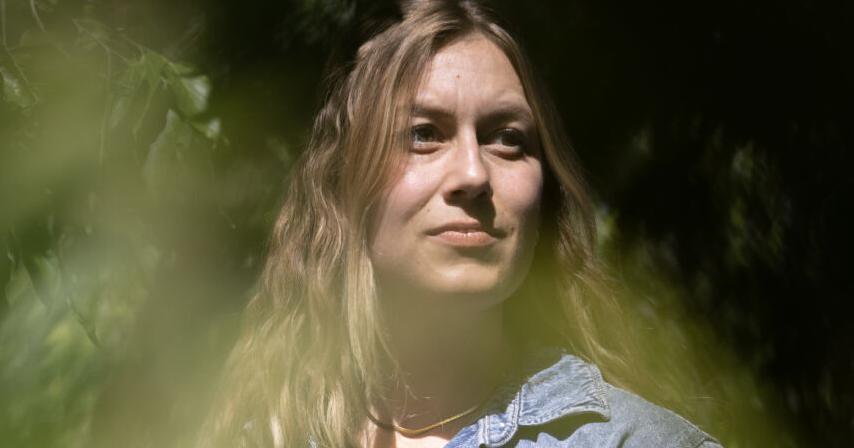The Big Sky Film Institute has recently undergone a leadership transition.
The organization behind the Big Sky Documentary Film Festival, the largest film event in the state, has appointed Julia Sherman as its new executive director. This change follows the departure of the previous director, Rachel Gregg, earlier this year.
Sherman, who studied the impact of film on social movements during her college years, has a deep-rooted passion for documentaries. She first volunteered for the festival years ago and witnessed firsthand the influence that documentaries, blending storytelling, history, and art, can have on audiences.
Julia Sherman is the new executive director of the Big Sky Documentary Film Festival.
“What an amazing platform to start conversations that need to be had,” she said.
Sherman has been with Big Sky for eight years, working most recently as education director and grant manager, with prior stints as operations manager, associate programmer, and more.
People are also reading…
Despite the challenges in film funding, Sherman believes that the festival is well-positioned due to its growth, industry connections, and strong community and sponsor relationships.
“This event is not only for filmmakers and industry professionals but also for our community, and we have successfully balanced these aspects over the years,” she remarked.
The Big Sky Documentary Film Festival, the largest of its kind in the region, made its debut in 2004 with 75 films showcased at Roxy Theater over six days. As interest in documentary films has increased, the festival has expanded, with the most recent festival hosting over 150 films from around the world, engaging more than 300 visiting filmmakers, and drawing an estimated attendance of 26,000.
When curating the festival lineup, Sherman emphasized the importance of selecting films that appeal to local audiences while also pushing creative boundaries.
The festival features four competitions, two of which are recognized by the Academy of Motion Picture Arts and Sciences. Winners of the short-form categories automatically qualify for the Oscar for Best Short Documentary. Additionally, the five-day DocShop conference welcomes representatives from leading organizations like HBO and The New York Times Video.
Background
Sherman hails from Fairbanks, Alaska, and graduated from the University of Montana with a degree in communications and a certificate in African American studies. Her work as an archivist and historian focused on the influence of visual media and film on social movements of the 1960s.
While examining historical footage and criminal records, she delved into Montana’s history of African American incarceration, scrutinizing the state’s low Black population. Sherman’s experience at Big Sky broadened her perspective on utilizing archival footage to narrate contemporary stories and resonate with modern audiences.
She also contributed to VidCon, a major YouTuber conference, and the Tribeca Film Festival in New York, further enriching her understanding of the media landscape.
Having collaborated closely with Gregg on grant applications and educational programs for several years, Sherman feels prepared to take on her new leadership role. In her recent role as education coordinator, she expanded the festival’s educational initiatives, reaching 13,000 students last year.
Through media literacy programs, teacher trainings, and public panels at the DocShop, Sherman aims to foster critical thinking about video content in an era dominated by streaming platforms, particularly true crime genres.
“We seek to uplift films that offer unique perspectives and shed light on untold stories, promoting diverse storytelling,” she noted.
Fresh energy
After leading the festival for eight years, Gregg decided it was time for a change to infuse fresh energy and vision into the event.
Reflecting on the festival’s growth in recent years, Gregg emphasized its commitment to the Missoula community. Now approaching its third decade, the festival presents an opportunity to focus on expanding its artist-centered initiatives.
Sherman’s involvement in educational programs and the development of the Doc Shop conference and the 4th World Media Lab, aimed at supporting Indigenous filmmakers in the early stages of their careers, aligns with this vision.
Gregg highlighted the success of initiatives such as enhancing the festival’s national reputation through strategic efforts, including improving graphics and outreach to filmmakers. She emphasized the festival’s ability to attract diverse talent and create a dynamic event experience.
Moreover, the festival’s online ticketing system revamp was crucial for the successful virtual event held in 2021 during the pandemic.
Overall, Gregg views the festival as a premier destination event that can rival larger festivals in terms of quality and impact within the film community.
She takes pride in building a diverse team of pre-screeners and programmers, establishing partnerships, and creating an engaging environment that attracts filmmakers and attendees from across the country.
Engaging with filmmakers at the festival screenings, Gregg admires their passion and creativity in sharing their work with a receptive audience.
Looking ahead, Sherman’s leadership promises to continue the festival’s legacy of showcasing innovative documentaries, fostering community engagement, and expanding opportunities for emerging filmmakers.





